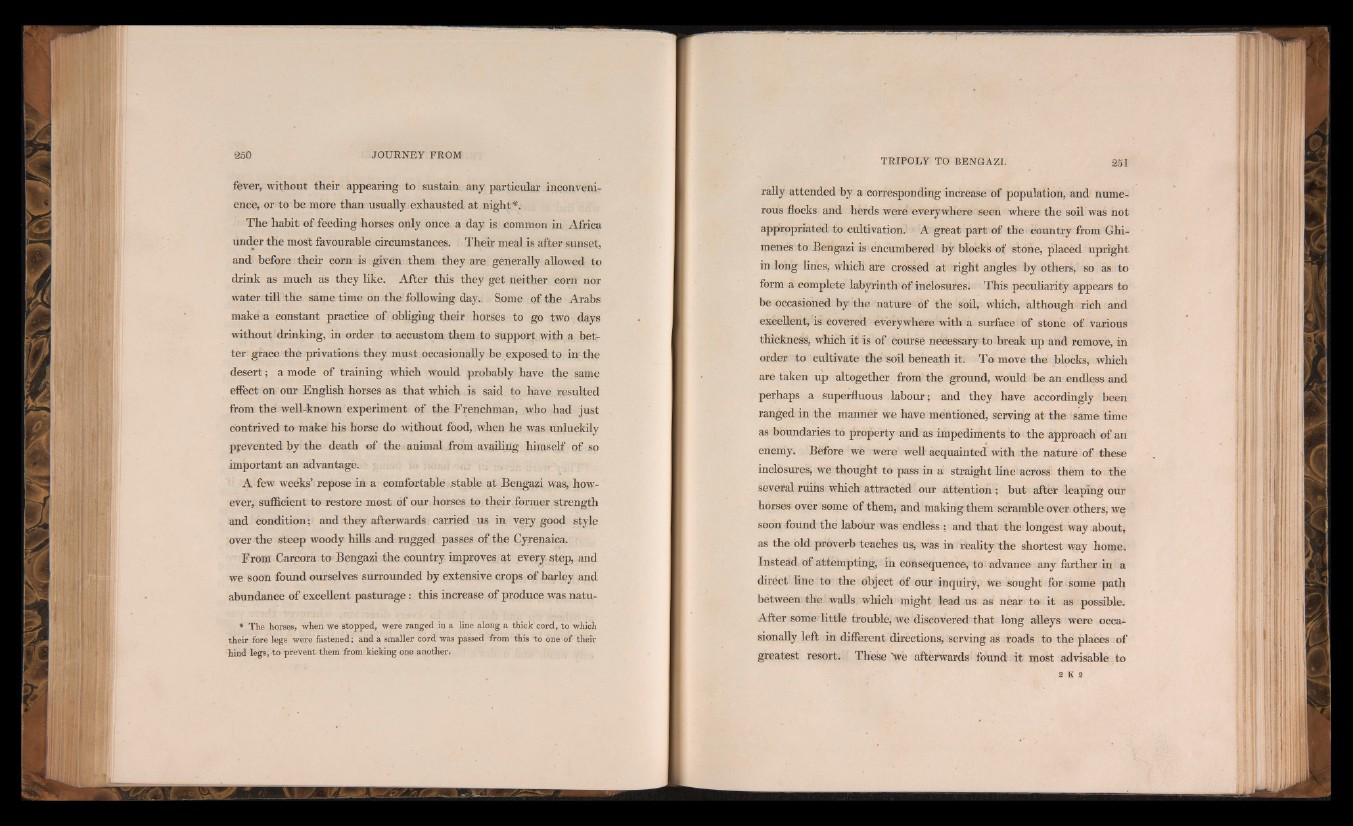
fever, without their appearing to sustain any particular inconvenience,
or to be more than usually exhausted at night*:
The habit of feeding horses only once, a day is common in Africa
under the most favourable circumstances. Their meal is after sunset*
and before their corn is given them they are generally allowed to
drink as much as they like. After this they get neither corn nor
water till the same time on the following day.. Some of the Arabs
make a constant practice of obliging their horses to go two days
without drinking, in order to accustom them to support with a better
grace the privations they must occasionally be exposed to in the
desert; a mode of training which would probably have the same
effect on our English horses as that which is said to have resulted
from the well-known experiment of the Frenchman, who had just
contrived to make his horse do without food, when he was unluckily
prevented by the death of the animal from availing himself of so
important an advantage.
A few weeks’ repose in a comfortable stable at Bengazi was, however,
sufficient to restore most of our horses to their,former strength
and condition; and they afterwards carried us in very good style
over the steep woody hills and rugged passes of the Cyrenaica.
From Carcora to Bengazi the country improves at every step, and
we soon found ourselves surrounded by extensive crops of barley and
abundance of excellent pasturage; this increase of produce was natu*
The horses, when we stopped, were ranged in a line along a thick cord, to which
their fore legs were fastened; and a smaller cord was passed from this to one of their
hind legs, to prevent them from kicking one another.
rally attended by a corresponding increase of population, and numerous
flocks and herds were everywhere seen where the soil was not
appropriated to cultivation. A great part of the country from Ghi-
menes to Bengazi is encumbered by blocks of stone, placed upright
in long lines, which are crossed at right angles by others, so as to
form a complete labyrinth of inclosures. This peculiarity appears to
be occasioned by the nature of the soil, which, although rich and
excellent, is covered everywhere with a surface of stone of various
thickness, which it is of course necessary to break up and remove, in
order to cultivate the soil beneath it; To move the blocks, which
are taken up altogether from the ground, would be an endless and
perhaps a superfluous labour ; and they have accordingly been
ranged in the manner we have mentioned, serving at the same time
as boundaries to property and as impediments to the approach of an
enemy. Before wè were well acquainted with the nature of these
inclosures, we thought to pass in a straight line across them to the
several ruins which attracted our attention ; but after leaping our
horses over some of them, and making them scramble over others, we
soon found the labour was endless ; and that the longest way about,
as the old proverb teaches us, was in reality the shortest way home.
Instead of attempting, in consequence, to advance any farther in a
direct line to the object of our inquiry, we sought for some path
between the walls, which might lead us as near to it as possible.
After some little trouble, we discovered that long alleys were occasionally
left in different directions, serving as roads to the places of
greatest resort. These "We afterwards found it most advisable to